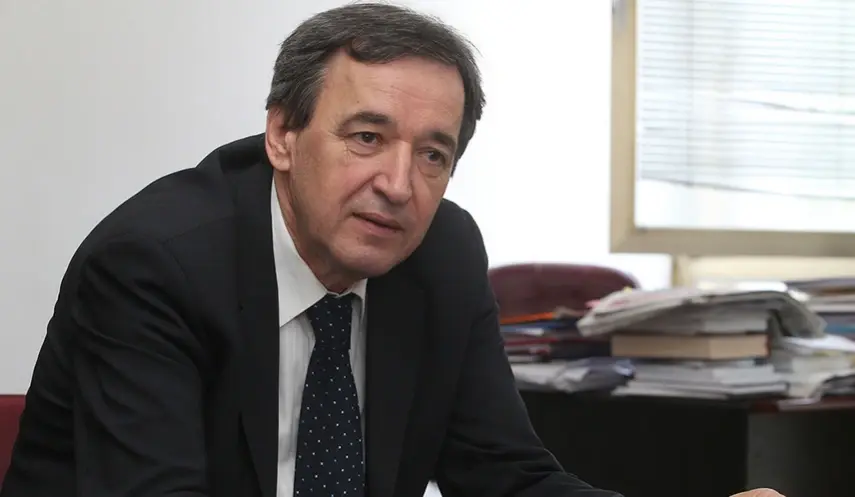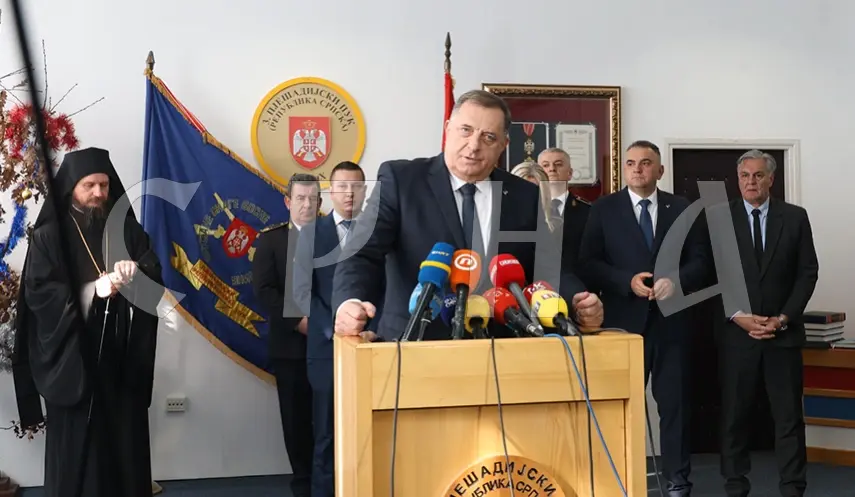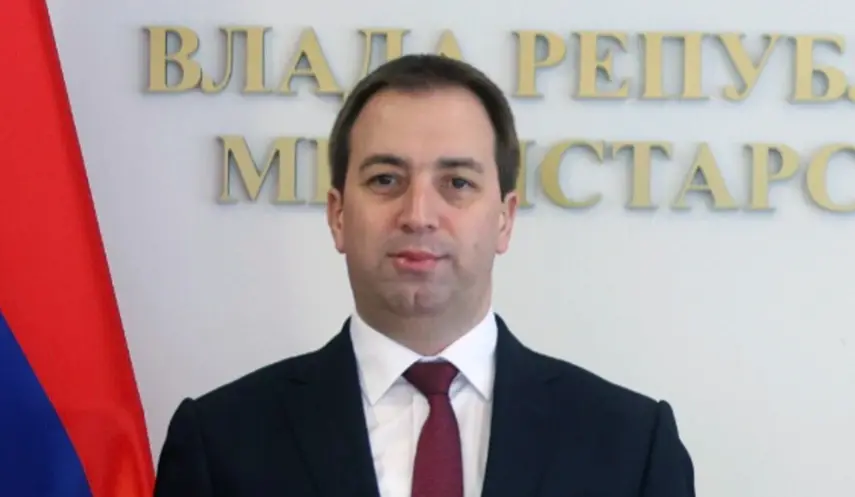DAYTON AGREEMENT FULFILLED ITS MISSION, ESSENTIAL TO STOP UNDERMINING OF ITS CORE PRINCIPLES
Republika Srpska - Banja Luka - conference
11/15/2025
12:18

BANJA LUKA, NOVEMBER 15 /SRNA/ – The Dayton Agreement fulfilled its mission and brought an end to the conflict, and it is now essential to halt all violations of the core principles that establish the balance between entity autonomy and joint action within Dayton BiH, Professor Mile Dmičić said.
Dmičić noted that the key step going forward is to ensure that the decades ahead, and the events that shape them, contribute not only formally but substantively to the preservation of what is, above all, a democratic value.
“That value is the rule of law, social justice, economic development, demographic growth, and everything that opens the perspective for Dayton’s solutions to serve as the foundation for recognizing diversity as an advantage — for our survival and our secure status within the Dayton framework,” Dmičić told reporters.
Dmičić is one of the participants of the expert and academic conference “Dayton 30: Three Decades of Peace – Legacy and Perspectives,” which opened in Banja Luka. Participants from Republika Srpska, the FBiH, and the region are discussing the challenges facing BiH, which since the signing of the Agreement has depended heavily on foreign interventionism.
Former BiH Presidency member Ivo Miro Jović stated that the main stumbling block throughout the years has been the insistence of political Sarajevo on a civic model — effectively the dominance of one people in BiH.
“That was certainly not the spirit of the agreement signed in Dayton. It was meant to build a state on principles of consensus and parity through the development of peace, trust, and understanding. I say this as a Croat. The constant accusation that Croats destabilize the political situation in BiH simply cannot be true,” Jović stressed.
Dušan Proroković of the Institute of International Politics and Economics in Belgrade argued that the Dayton Agreement was never given the chance to function to its full capacity, as high representatives continuously imposed solutions.
Proroković pointed to a 30-year process of derogating Dayton, noting that this demonstrates it was treated as a temporary arrangement.
“The likely way forward is to return to full-scale ‘Daytonization’ in the true sense of the word. Whether there is readiness for that at this moment, I cannot say. The US views the Balkans one way, Brussels another, and within the EU various countries view it in yet a third,” Proroković highlighted.
Professor Ljubinko Mitrović spoke about the status of the BiH Constitutional Court, warning that the institution currently has no Serb judges and that decisions are being made by foreign judges who should have completed their mandates long ago.
He stressed that foreign judges should be thanked for their service and domestic judges appointed.
“There are differing views on this. Some proposals call for appointing three judges from each constituent people, but this is not a formula acceptable to representatives of one of the peoples. It has been said that the Bosniaks would accept domestic judges — but only if five of them were Bosniak, which undermines everything we are talking about: the equality of the three peoples and the two entities,” Mitrović stated.
After the scientific-expert conference has ended, formal conclusions will be published.

CVIJANOVIĆ: GRATITUDE TO DONALD AND MELANIA TRUMP FOR CHRISTMAS AND NEW YEAR GREETINGS

ŽUPLJANIN: THERE IS NO END IN SIGHT TO INSANITY COMING OUT OF SARAJEVO

BOSNIAK PRIVATIZATION OF BiH HAS BECOME DISGUSTING

SELAK: BiH CONSTITUTIONAL COURT SHOULD REJECT REQUEST TO ASSESS CONSTITUTIONALITY OF GOVERNMENT OF REPUBLIKA SRPSKA



